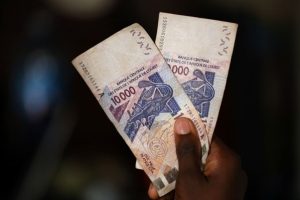SALEM, Oregon — Impact Africa Network (IAN) is a nonprofit startup studio in Nairobi. Its mission is to ensure that young talented Africans can participate in the digital transformation of Africa as creators and owners.
Unfortunately, Africa has countless opportunities for new ventures but lacks the infrastructure to encourage
entrepreneurial skillsets or economic risk-taking. Young people have few examples of and no real background in entrepreneurship; most seek education to get jobs, not to start businesses. The Borgen Project interviewed CEO and founder of IAN, Mark Karake, on how the organization is working to change that. With a snowballing population
growth that is predicted to be more than 25% of the world’s population by 2050, Africa holds significant potential to become a key STEM hub if its young innovators can be trained in the skillsets required to effectively engage in Africa’s digital transformation. Mark Karake launched IAN in January 2019 to address this disparity. IAN’s mission
is a simple yet profound one:
“We have seen many of them joining the initiative as Fellows of the Anzisha Prize between the ages of 17 and 22, building their businesses from scratch and quickly building teams of age-mates who then grow together with them.”
How it Works
The studio welcomes young college graduates and gives them the opportunity to work on wellvetted projects initiated by the startup studio. IAN equips them with the knowledge, skills and resources to launch these projects. Karake calls this “bottoms-up capacity building.” Developing nations need to prepare the raw talent to build the projects, not
the other way around. In this way, training young entrepreneurs can drive social and economic change by creating innovation leaders, strengthening community and building infrastructure. IAN’s 2030 goal is called the 10- 10-10 plan. It entails helping young entrepreneurs build 10 companies, worth a total of $10 billion, and in the process, creating 10,000 new African jobs. IAN vets potential projects primarily by market opportunity. Mentorship is the driving force behind IAN’s methodology. Twelve-month Innovation Fellowships give college graduates the guidance of an experienced leadership team. Additionally, global business leaders feature as
IAN’s 2030 goal is called the 10- 10-10 plan. It entails helping young entrepreneurs build 10 companies, worth a total of $10 billion, and in the process, creating 10,000 new African jobs. IAN vets potential projects primarily by market opportunity. Mentorship is the driving force behind IAN’s methodology. Twelve-month Innovation Fellowships give college graduates the guidance of an experienced leadership team. Additionally, global business leaders feature as
guest speakers in “Fireside Chats” and a Power Speaker Series. There are also opportunities for volunteers to offer more extensive mentoring through informal discussions, coaching sessions, project advisor positions and skillset
teaching. During their fellowship, fellows learn professional skills and marketability and have the opportunity to be part of a startup founding team before beginning their own startup projects.

IAN’s Projects Since it began, IAN has been prolific in launching a number of its own projects and extensions to assist its fellows. Most accessible are a number of online platforms and service providers.
S y s t e m a t i c Entrepreneurship: This online platform equips innovators with the required knowledge and
resources to help them along their “entrepreneurial journey.” Many new entrepreneurs struggle with the process of actualizing their ventures; Systematic Entrepreneurship provides a systematized method to help them manage and streamline the process. By helping young startups to run more smoothly, IAN indirectly aids in creating more jobs to decrease Africa’s high unemployment rates.
Done! International: This platform helps the African diaspora to plan, organize and execute their own projects from wherever they live in the world. Individuals of the diaspora who want to invest in Africa often face the challenge of finding a reliable partner to manage and develop the venture on the ground. IAN addresses
this challenge by offering a number of services. These include anything from vendor collecting and material sourcing to market research, transport and logistics, website development and package delivery.
Launchpad: This campus provides a global space for the innovation community to “coexist, collaborate and create.” IAN considers it “the heartbeat and nerve center of the Nairobi ecosystem.” It creates an atmosphere for all entrepreneurs, investors and businesses to work together to cultivate an environment that will facilitate Nairobi’s economy. Indeed, Launchpad acts as a localized example of Impact Africa Networks’ vision for activating Africa’s economic potential.
Seamless HQ: This is HR software for modern-day companies. It aims to capture the fragmented HR space
in Africa and make it one seamless experience.
Startbox: A project designed to provide research and guidance for young innovators with the tools they
need to successfully set up their startup projects. Startups launched The most recent extension is a data science and AI school. It teaches “soft and technical skills” so that students are well-versed in cuttingedge technologies. During a
12-month program consisting of four modules, Jenga School teaches mathematics for data science, statistical
methods, database systems, data visualizations, timeseries forecasting, machine learning, introduction to AI
and engagement with practical projects. With such an intensive focus, it’s one step up in STEM talent development. As stated on the school’s website, “Our mission is to unleash Africa’s genius to help solve global problems.”
IAN’s Media Presence IAN also has a growing presence on a number of media platforms. This enables the organization to offer further information and assistance to young African entrepreneurs:
Youtube: IAN’s Youtube channel features a variety of playlists. Most notable are the “Daily Vlogs by Mark”
and “Power To Our Women.” The former features short vlogs from CEO Mark Karake on basic insights into ecosystems and startup advice. The latter playlist consists of a live cast series of global female leaders with the intent of inspiring women’s participation in African business. Karake believes that women “possess unique characteristics that are more effective at nurturing complex peoplecentric systems” such as startups. He foresees women entrepreneurs as having a central role in driving Africa’s innovation economy.
Chini ya Maji Podcast: This podcast discusses the Nairobi startup ecosystem. Primarily, this consists of interviews with prominent businessmen and professionals. It also combined with insights into their respective sectors and experiences navigating Kenya’s business world.
Medium: Impact Africa Network has a publishing platform on Medium that features a host of writers and
dynamic thinkers. Articles address a wide variety of topics related to African startups, such as technologies that
increase productivity, the African tech space, women in startups, creation clarity, Africa’s talent and social media
strategies.
Funding As a nonprofit, IAN is entirely funded by donations. This is by design since running costs are very low in Africa as is bottoms-up capacity building. The nonprofit model is well suited to transforming low-cost talent into innovative business leaders. IAN sports the 100 Founders Challenge for large business donors and corporate investors. However, it highly encourages micro-donations as low as $20. Impact Africa Network has already established an impressive repertoire of material for African entrepreneurs. The Nairobi team seems to have
nothing but momentum. Future plans involve critical domains such as financial literacy and inclusion as well as education and professional development.
– Andria Pressel
Source: borgenmagazine.com



















Add Comment